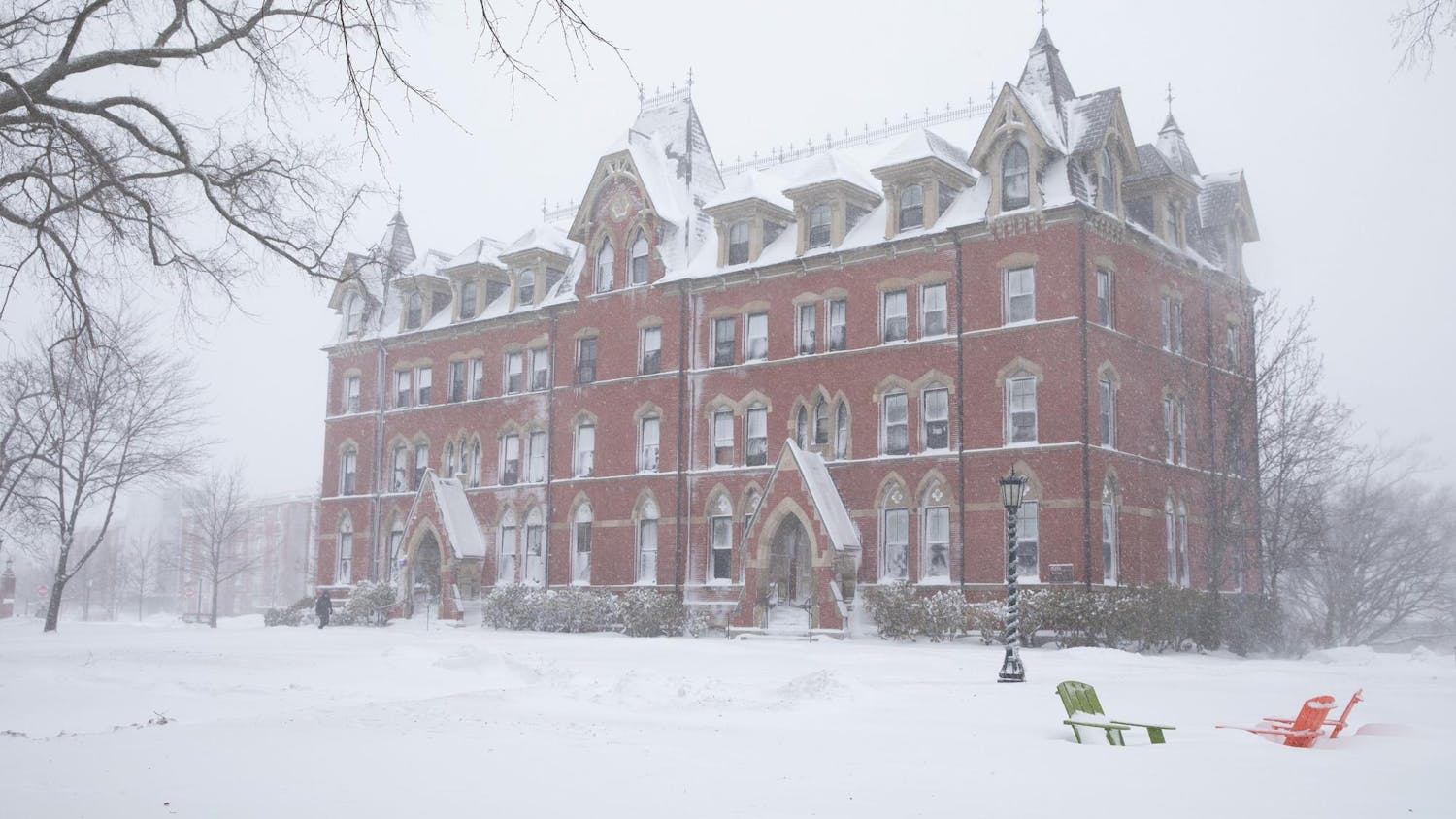Former president of the Republic of Georgia, Mikheil Saakashvili, will serve as the Fletcher School of Law and Diplomacys first Senior Statesman starting this January.
The position of Senior Statesman is a new idea, intended to provide students with access to internationally known leaders and practitioners in a variety of fields, Admiral James Stavridis, dean of The Fletcher School said.
Our concept is to try to bring each year some important international political figure to be affiliated with The Fletcher School, he said.
Saakashvili, who served as president for two terms between 2004 and 2013, founded Georgias United National Movement Party and led the Rose Revolution, which forced the resignation of the Republic of Georgias president at the time.
Saakashvili will not be in residence at Fletcher full-time, but is expected to visit on three or four occasions during both semesters of his one-year appointment.
Saakashvili is excited to interact with students at The Fletcher School in both informal and educational settings, he said.
I like to talk to students, Saakashvili said. I have always loved to talk to them, even when I was elected in politics.
After graduating from the Institute of International Relations at the Taras Shevchenko National University of Kyiv, Saakashvili came to the United States to study law, receiving a Master of Laws from Columbia University and taking doctoral-level classes at the George Washington University Law School. In 1995, he received a diploma in Comparative Law of Human Rights from The International Institute of Human Rights in Strasbourg, France.
Saakashvili was first elected to the Parliament of Georgia in 1995 and five years later became the countrys Minister of Justice under President Eduard Shevardnadze, his presidential predecessor. In 2004, after a bloodless revolution, Saakashvili became the youngest national president in Europe and third president of the Republic of Georgia.
Throughout his presidency, [Saakashvili] was able to improve the economy dramatically, reduce corruption in the state and connect with the West, the United States and with NATO, Stavridis said. He is a practitioner of diplomacy in a very challenging position in a small nation, and has done a very good job leading his nation in its early days since finding independence.
Stavridis believes that one of Saakashvilis most important contributions to Georgia was leading the Rose Revolution a 20-day long peaceful protest that ended the previously totalitarian period of Soviet Era leadership. Saakashvili was instrumental in organizing more than 100,000 protesters during the revolution.
To turn this many people out in a non-violent revolutionary setting was really quite remarkable, Stavridis said. I think it is fair to say that [Saakashvilis] personal leadership and charismatic personality were very much a part of organizing all of this.
According to Academic Dean of the Fletcher School Ian Johnstone, Saakashvilis experiences will be valuable to the students and faculty at Fletcher.
[Saakashvili] was a very lively figure in a very crucial part of the world and has a lot of international experience as a result, Johnstone said. We are hoping he comes and shares that experience and the perspective ... on relations with the United States, Europe and Russia, the evolution from authoritarian to democratic leadership and anti-corruption measures all of which he was associated with when he was president.
Saakashvili chose to join The Fletcher School as Senior Statesman because Fletcher is a prestigious school with many faculty and students who focus on his region of the world,12





